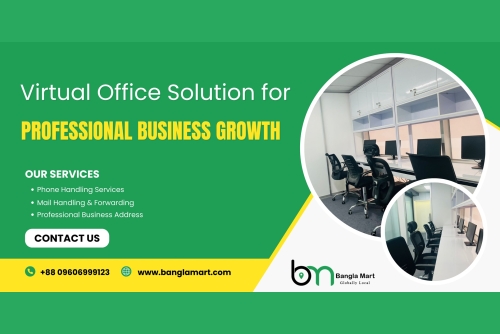Vendor Management Process That Involves Researching
Vendor management is the method through which a firm can control expenses, mitigate potential vendor risks, ensure excellent service delivery, and obtain long-term value from suppliers.
That's where the vendor management system, or VMS, comes in. A vendor management system is a web-based platform that acts as a single point of contact for all vendor-related activities in any organization or business, allowing for enhanced efficiency and low-cost long-term growth.
The global vendor management software market was valued at USD 5.21 billion in 2019, and it is estimated to grow at a healthy rate of more than 13% annually between 2019 and 2026.
Key Points:
1.A VMS can assist you in reducing labor costs, increasing productivity, and increasing efficiency.
2.A VMS can provide HR and Procurement management with the transparency they need to guarantee that their organization hires skilled external workers with the right certifications and qualifications.
3.By working closely with Procurement and HR and deploying the correct VMS, the company may improve the value of all interactions with service providers.
5 Most Significant Benefits of Vendor ManagementImplementing proper vendor management can provide the following benefits to an organization:
1.Improved Selection
By implementing appropriate vendor management, your company will have access to a larger pool of vendors, giving you more alternatives and lower rates.
2.A more efficient contract management system
The lack of a vendor management system in a multi-vendor setting makes it difficult to handle contracts, documentation, and other vital information.
3.Performance Management Improvements
Implementing a vendor management system will give you a complete picture of the performance of all of your vendors.
4.Vendor Relationships Have Improved
It's never easy to manage multiple vendors at the same time. Some vendors will make a lot of money, while others will not. However, managing vendor relationships is crucial to a successful project completion.
5.A Better Offer
The ultimate goal of a vendor management system is to get the most bang for your buck. As a result, appropriately deploying a vendor management system can lead to long-term savings and higher earnings.
While there are several benefits, some challenges must be solved in order for the company to function well.
An organization may face a plethora of problems if vendor management isn't done correctly. Here's a list of them:
1.Vendor Reputation Risk
Managing several vendors is a challenging endeavor. Furthermore, before engaging into a contract, the quality of the work must be assessed, making the process more challenging.
2.Issues with Visibility
While a centralized data storage solution is essential for managing vendor data, it also gives the company a centralized view and more visibility, which can lead to more efficient resource allocation and use.
3.Vendor Data Retention
As your organization grows, having a vendor data storage solution in place becomes increasingly vital. Maintaining and retrieving data without a vendor management system might be tough because you may be dealing with different vendors for multiple projects at the same time.
4.Risk of Vendor Payment
Some vendors may have unique payment terms, while others may adhere to industry standards. One of the most difficult tasks is determining the terms and ensuring that payments are paid on time, especially when working with a large number of vendors at once.
6 Easiest Vendor Management ProcessAs a result, we may say that good vendor management is critical. Every step of the way, a company must establish and adopt a strategy to describe how it will communicate with its vendors.
(1) Identifying and establishing business objectives
Before commencing the vendor management process, it is necessary to establish and create business goals that require vendor participation. When it comes to selecting and contracting with vendors, this makes it easier to understand the needs of each business unit and eliminates duplication of effort and resource waste.
(2) Establishing a Vendor Management Team
Following the defining of business objectives, the formation of a dedicated vendor management team should be the next step. This centralized team should be capable of setting vendor management business goals and KPIs, identifying appropriate suppliers, negotiating contract terms, regularly monitoring vendor performance, and keeping track of all transaction activities.
(3)Creating a database for all vendor-related information
After the business goals have been determined and the vendor management team has been established, the next step should be to construct an updated and categorized database of all important suppliers and vendor-related information.
This strategy has a number of advantages.
I It will match the requirements of the various business units with the suitable provider. For office supplies, computer equipment, and other products, the administration, for example, can choose appropriate vendors.
(ii) After vendors are divided into categories, cross-vendor comparisons will be easy to evaluate.
(4) Criteria for Choosing a Vendor Identifying the Criteria for Vendor Selection
After you've streamlined, updated, and categorized all vendor-related data, you'll need to decide on the criteria that will be utilized to choose all relevant vendors.
(5) Evaluation and Selection of Vendors
At this step, the vendors must be evaluated based on the selection criteria and, if applicable, the bidding procedure.
In the offered proposals, the pricing structure, scope of work, and how the criteria will be reached, as well as the terms and conditions, expiry and renewal periods, must all be thoroughly assessed. As a result, your organization will get the greatest bang for its dollars from the provider. Keep a look out for hidden savings opportunities!
(6) Choosing Vendors and Creating Contracts
So you've finally met your soul mate. It's time to wrap up the legal paperwork and bring on your vendor.
The contracting step is often assigned to the legal and finance teams, as well as senior executives dealing with suppliers. The remainder of the business units receive the contract after it is finalized and engage with the vendors.
Best Practices for Improving Your Vendor Management Strategy
You've built up a method for managing vendors that works effectively for your company. Vendor selection, on the other hand, is just the start of vendor management. There are approaches and best practices that can supplement your process and improve the effectiveness of your organization's vendor management. Think about the following scenarios:
(1) Make sure you're on the same page with your expectations.
It's vital to explain the organization's business goals as well as the suppliers expectations while working with vendors. Tell the vendors about your current and future needs, as well as how they relate to your company's objectives.
(2) Make certain that your deadlines are both reasonable and feasible.
Setting dates that the vendors can fairly meet is crucial given your objectives and expectations. Setting unrealistic time frames limits vendor performance and value creation, while also increasing risk and impeding meaningful collaboration.
(3) Collaborate with your vendors to maintain long-term partnerships.
Isn't it true that the phrase partnership has appeared on multiple occasions? It's significant since just negotiating pricing and performance with vendors results in the transaction's execution.
Differences Between Vendor Management and Vendor Relationship ManagementIn many cases, the phrases vendor management and vendor relationship management are interchangeable. Is it true that adding one additional word improves the quality of a sentence? In fact, it does. While vendor management spans an organization's whole relationship with its vendors, vendor relationship management is a subset of vendor management that focuses on the human side. At the end of the day, vendors are represented by people, and we've already discussed how critical vendor relationships are to a business.
A Few WordsThis blog post examines vendor management, which is an important aspect of how a company operates. To develop an effective plan for managing your vendor relationships, you must first understand the benefits and challenges of vendor management.
Supplement your process with vendor management best practices to ensure that your vendors provide the most value to your company.













